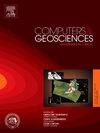GeoFedNet: Federated learning for privacy-aware, robust, and generalizable seismic interpretation
IF 4.4
2区 地球科学
Q1 COMPUTER SCIENCE, INTERDISCIPLINARY APPLICATIONS
引用次数: 0
Abstract
Seismic structural interpretation is crucial for understanding subsurface geology, particularly in hydrocarbon exploration, as it aids in identifying reservoir formations, assessing drilling risks, and optimizing resource extraction. However, developing a widely generalizable model for seismic interpretation remains challenging due to the limited availability of large-scale public datasets, variations in seismic surveys, and privacy constraints that hinder data sharing. These factors lead to inconsistencies in model performance across diverse datasets, limiting the applicability of existing approaches. To address this gap, we propose a federated learning-based framework for seismic interpretation, enabling distributed model training without requiring direct data sharing. In this approach, local models are trained independently across different clients, and a global model is aggregated to improve generalization across heterogeneous datasets. This method not only preserves data confidentiality but also mitigates challenges related to labeled data scarcity and class imbalance, allowing clients with limited data to benefit from collaborative learning. We evaluate GeoFedNet on three key seismic interpretation tasks: seismic structure classification, salt detection, and facies segmentation. Across all tasks, GeoFedNet achieves performance within 1%–3% of centralized models while significantly outperforming isolated local models by up to 15% in accuracy and generalization. These results demonstrate that our framework can effectively learn from non-IID and imbalanced data without compromising performance. GeoFedNet also shows improved robustness to client variability and better minority class recognition, which are critical in real-world subsurface interpretation scenarios. These findings highlight the potential of federated learning in enabling hydrocarbon companies to collaboratively train robust seismic interpretation models while maintaining data privacy, ultimately improving exploration efficiency and informed decision-making.
GeoFedNet:用于隐私感知、鲁棒和通用地震解释的联邦学习
地震构造解释对于了解地下地质至关重要,特别是在油气勘探中,因为它有助于识别储层、评估钻井风险和优化资源开采。然而,由于大规模公共数据集的可用性有限,地震调查的变化,以及阻碍数据共享的隐私限制,开发一个广泛推广的地震解释模型仍然具有挑战性。这些因素导致不同数据集的模型性能不一致,限制了现有方法的适用性。为了解决这一差距,我们提出了一个基于联邦学习的地震解释框架,实现分布式模型训练,而不需要直接共享数据。在这种方法中,局部模型在不同的客户端上独立训练,全局模型被聚合以提高跨异构数据集的泛化。这种方法不仅保护了数据的机密性,还减轻了与标记数据稀缺和类别不平衡相关的挑战,使数据有限的客户能够从协作学习中受益。我们在三个关键的地震解释任务上对GeoFedNet进行了评估:地震构造分类、盐检测和相分割。在所有任务中,GeoFedNet在集中式模型的1%-3%内实现了性能,而在精度和泛化方面明显优于孤立的局部模型,最高可达15%。这些结果表明,我们的框架可以在不影响性能的情况下有效地从非iid和不平衡数据中学习。GeoFedNet还显示了对客户端可变性的更好的鲁棒性和更好的少数类识别,这在真实的地下解释场景中至关重要。这些发现突出了联合学习的潜力,使油气公司能够在保持数据隐私的同时协同训练强大的地震解释模型,最终提高勘探效率和明智的决策。
本文章由计算机程序翻译,如有差异,请以英文原文为准。
求助全文
约1分钟内获得全文
求助全文
来源期刊

Computers & Geosciences
地学-地球科学综合
CiteScore
9.30
自引率
6.80%
发文量
164
审稿时长
3.4 months
期刊介绍:
Computers & Geosciences publishes high impact, original research at the interface between Computer Sciences and Geosciences. Publications should apply modern computer science paradigms, whether computational or informatics-based, to address problems in the geosciences.
 求助内容:
求助内容: 应助结果提醒方式:
应助结果提醒方式:


